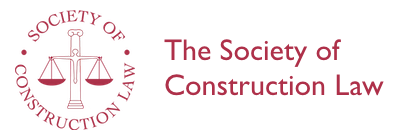Court challenges to ADR in Construction: European and English Law
Philip Britton
January 2009
A paper based on the essay awarded the Norman Royce Prize 2008 by the Society of Construction Arbitrators.
If a construction project uses a form of Alternative Dispute Resolution - or has ADR applied to it - when and how may one of the parties challenge these procedures as in themselves unfair or otherwise contrary to law? If a challenge is successful, what consequences follow? These are the questions explored in this essay from Philip Britton awarded the Norman Royce Prize 2008 by the Society of Construction Arbitrators. The author considers the possibilities for court challenge of ADR primarily in the context of the impact of article 6(1) of the European Convention and of the EC Directive on Unfair Contract Terms in Consumer Contracts. Its main focus is on adjudication (both statutory and contractual) and on court-encouraged ADR; it also draws contrasts with the different forms of statutory adjudication in construction in Singapore and Australasia.
A. Introduction - The general theme - The impact of adjudication - Adjudication and arbitration - Litigation as a fundamental right - Challenging ADR: the starting point - B. Challenging mandatory ADR: Adjudication - Is adjudication mandatory? - Contractual 'add-ons' within statutory adjudication - Scope for attacking statutory provisions - Application to statutory adjudication - Adjudication and the substance of article 6(1) - Waiving Convention rights - C. Challenging semi-mandatory ADR: Civil Procedure - The regulatory framework - Application in practice: costs sanctions - After Halsey - CPR, ADR and the European Convention - the EC Mediation Directive - D. Challenging contractual ADR - Possible grounds: European and English law - Applying the UTCCR to ADR in construction - E. Conclusions - the law as it is - The law as it may become.
The author: Philip Britton LLB BCL is a former Director, now Visiting Professor, Centre of Construction Law & Dispute Resolution, King's College London.
Text: 46 pages.
PDF file size: 581k
